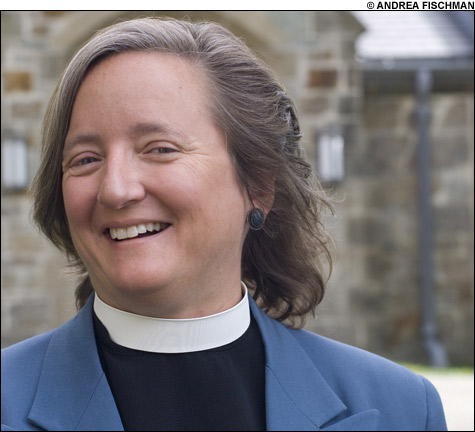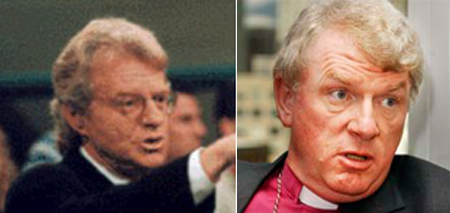This is a response to John W Martens’ article, which follows prior articles here and here.
John,
Thanks for the interesting article in response to my last post. We seem to have drifted away from discussing what Rowan Williams’ view of miracles is; perhaps that is not such a bad thing.
I agree that we share the common ground of rejecting the idea that nature or the created universe is all there is: we both believe in the supernatural. It would be rather odd for Christians to believe otherwise, of course.
We seem to have a different understanding of the meaning of God’s immanence and transcendence. You say: “I want to maintain this claim in the context of God’s immanence in, not just transcendence over, nature”. From this, I take it that you believe that God is, in some sense immanent in his creation and transcendent over it. I do too, but, as far as I can see, in a different way to you. You quote Terry Nichols again, who says: “theologically, and even logically, God cannot be completely separate from the created order. If God were “wholly other,” God could not influence the world, nor could the world influence God”. Stating that God is not “wholly other” from his creation has, I believe, the following problems:
If we mean that God is wholly not other than his creation, he is wholly within it and, therefore not transcendent in any sense: he created himself, a notion that is clearly absurd.
If we mean that God is partly other than his creation (transcendent) and partly within it (immanent), then he is divided, an attribute that is impossible for God.
If we mean that God is simultaneously wholly within creation and wholly other than it we have a logical contradiction along the lines of “A and not A are both true”.
Perhaps what you mean by God is not “wholly other” is that he does not hold himself aloof from his creation; I agree with that.
I believe God is transcendent – he exists wholly outside of creation. I think he is immanent in that the universe is a place where he operates or acts but the universe does not contain him.
In the universe, God is a causal agent. Contrary to what Nichols says, I can’t see anything illogical in this: it would be illogical only if the universe was a causally closed system and, as Christians, we have extremely good reasons for supposing it isn’t, one of which I touched on in my first article: the existence of human free-will. For a transcendent God to be a causal agent, he must “intervene”.
Col 1:17 tells us that God is continually acting to sustain the universe, including, presumably, what we think of as its natural laws:
“And he is before all things, and in him all things hold together”
So God is immanent in his creation through his sustaining of it; he is also immanent in special actions – miracles.
God appears in the created order: we may perceive, experience him and know he is with us. I would argue that, being made in God’s image, that part of us which is transcendent is seeing and experiencing beyond nature – the supernatural. God has not become a part of nature so we can experience him, rather we exist partly in supernature so we can experience him.
I would agree that humans usually play “some role in the process” of miracles. I wouldn’t agree, though, that even though God usually works in conjunction with our faith, that he is necessarily limited in his actions by our participation.
Your saying:
“I do see miracles as supernatural causality working within the context of nature, but “it is not the case that God arbitrarily decides to intervene here and not there, now and then””
still puzzles me because I can’t see why God’s intervening “here and not there” must be arbitrary or why “working within the context of nature” would be any less arbitrary. I really can’t fathom what “working within the context of nature” means, since any act of God that causes a change in the material universe is “within the context of nature”.
When you say “I do not think that God’s action through miracles violates the laws of nature” I almost agree. I would rather say that for a miracle to be a miracle, it doesn’t have to violate the laws of nature. If the laws of nature are not true in a necessary sense – as, for example, “two statements that contradict one another cannot both be true” is – and were created along with the material universe, I can think of no particularly convincing reason why he who created them could not violate them if he chose to. The fact that that might offend human sensibilities is hardly a reason to suppose that it is impossible.
On this:
I disagree with your definition in these ways: if “external world” is meant to indicate God’s general absence from the world into which God now and then deigns to act – I want to stress that God is always present and active;
by “external world”, I meant to convey creation and, as noted above, I don’t believe God is aloof from it, but I do believe he is transcendent over it.
On this:
if “immediate agency or the simple volition of God” are meant to indicate that God acts without reference to faith or the relational quality of creation in which human beings also play a part – I want to insist that God is a personal God and even if we cannot understand all of the means or processes by which or for which God acts, God could not act in ways which do not account for the integrity of human relationships with God.
Again, as I noted above, I think God can act without reference to faith and there are numerous Biblical examples of him doing that. I agree that God is a person – well, three persons – but when you say “God could not act in ways which do not account for the integrity of human relationships with God”, I am not sure whether you mean the integrity that exists in man’s relationship to God by virtue of God’s acting through Christ’s atoning sacrifice on the cross, in which case you might have a point, or whether you mean any relationship with God. Outside of our relationship with God through Christ, I’m not sure you do have a point, since there is no integrity of relationship without Christ.
On this:
Miracles are signs of God’s grace perfecting the natural order and our openness to that grace of God. They are also signs of the perfection which is intended for the natural order and for us, as Paul says in Romans 8:22-23
I agree that miracles can be “signs of the perfection which is intended for the natural order and for us”, but I am not sure that “perfecting the natural order” is something that is happening gradually: I think the groaning will stop after the arrival of the eschaton and it will come with more of a bang.
I have meandered from my initial contention that Rowan Williams doesn’t believe in miracles; it is rumoured that he might have better things to do than straighten out what I think about what he thinks. But I hold to my initial contention that “miracle” is God intervening in his creation.


 Humour is a wonderful gift from God. It can be used to puncture the pomposity of self-righteous bombasts and it is particularly satisfying to see it wielded against that most perfect paradigm of pretentious self-righteousness, the Islamist Mullah.
Humour is a wonderful gift from God. It can be used to puncture the pomposity of self-righteous bombasts and it is particularly satisfying to see it wielded against that most perfect paradigm of pretentious self-righteousness, the Islamist Mullah. Rev. Ragsdale is president and dean of the Episcopal Divinity School and a lesbian. No-one was shocked by that, but she did cause a bit of a stir when she
Rev. Ragsdale is president and dean of the Episcopal Divinity School and a lesbian. No-one was shocked by that, but she did cause a bit of a stir when she  John Laubach regularly had sex with other men, wandered around his neighbourhood with a parrot on his shoulder and met his demise tied to a bedpost with electrical wire while engaging in a little recreational – if unconventional – sex. In his spare time he
John Laubach regularly had sex with other men, wandered around his neighbourhood with a parrot on his shoulder and met his demise tied to a bedpost with electrical wire while engaging in a little recreational – if unconventional – sex. In his spare time he 